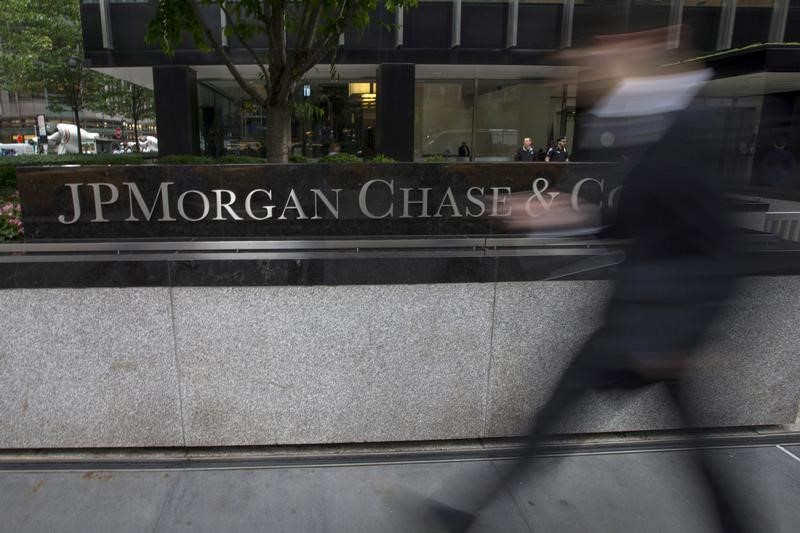By David Henry
NEW YORK (Reuters) - The U.S. Federal Reserve began steadily raising interest rates one year ago, offering a long-awaited tailwind for bank earnings because lenders can charge borrowers more for loans.
But ask bankers when they will start paying more for the money that savers have in their deposit accounts, and the answer is: not any time soon.
Depositors now have $11.95 trillion at U.S. commercial banks, close to the $11.99 trillion record set in November, according to data from the Federal Reserve Bank of St. Louis. Yet even as the Fed has boosted its target for short-term rates four times, to a current range of 1.25 to 1.5 percent, savers are only earning pennies on every $100 they hold in deposit accounts.
Even rates on one-year certificates do not appear to have moved at the three biggest U.S. consumer banks – JPMorgan Chase & Co, (N:JPM) Bank of America Corp (N:BAC) and Wells Fargo & Co (N:WFC) – according to financial analyst Greg McBride of Bankrate.com, who did spot checks in two competitive urban markets, Los Angeles and Houston.
When rates rose in prior economic cycles, a 1 percentage point rise in overnight rates typically led depositors to start moving money to higher-yielding accounts, whether at other financial institutions or fund managers, said Jefferies bank analyst Ken Usdin. However, because rates moved to essentially zero in 2008 and took an historically long time to rise even a smidgeon, it is taking longer for consumers to take their money and run.
“I do keep wondering what the magic number is going to be,” he said. “There may be more eye-opening at 1.5 percent.”
When reporting earnings in recent days, bank executives at JPMorgan Chase & Co (N:JPM), Wells Fargo & Co (N:WFC) and Citigroup Inc (N:C) said they have no reason to pay more because ordinary depositors are not yet demanding more. It is hard to know when that will change, they said, but there is no competitive pressure yet.
Although online banks offer more competitive rates, they lack the full suite of products and services that customers have come to appreciate from big banks, said Wells Fargo’s John Shrewsberry.
High net-worth individuals, companies and other financial institutions have been threatening to move sizeable deposits unless they get paid more. For them, even a tiny fraction of a percentage point of added interest can be worthwhile, he noted. But that is not true for most individuals who would reap scant rewards and face hassles like having to change direct deposit enrollment or automatic payments.
"That is part of the bargain," he said. “There’s the question of, how much am I getting paid for my deposit, and how much value am I getting for that deposit relationship with the bank?”
Low deposit rates at Citigroup are "a reflection of the state of competition," said the bank’s finance chief, John Gerspach. The widening gap between loan rates and deposit rates helped drive Citi’s U.S. retail banking revenue up 7 percent, he said.
Asked when banks would start paying more, JPMorgan Chief Financial Officer Marianne Lake said she expected banks to “remain quite disciplined” on rates through the remainder of 2018.
After Bank of America reported results on Wednesday, CFO Paul Donofrio told analysts the bank will eventually have to raise rates on smaller accounts.
"My guess is we are getting close to that point, given the expected fed funds rate hikes," Donofrio said.
Analysts and bankers pointed to recent tax reform as one potential force of change.
TAX CHANGES COULD SPUR HIGHER RATES
Now that corporate tax rates have dropped to 21 percent from 35 percent, there may be stronger demand for loans, which in turn could spark higher rates for deposits to fund them, they said.
And, if the Fed keeps lifting rates in the months ahead, as Wall Street predicts, consumers may start drawing down on deposits, leading banks to use some of their own tax savings to pay more competitive rates.
It is a question of when, not if, said Jefferies’ Usdin.

"We are all waiting for that moment when the retail depositor does have that wake-up moment,” he said, “but I don't feel like it is happening this quarter.”